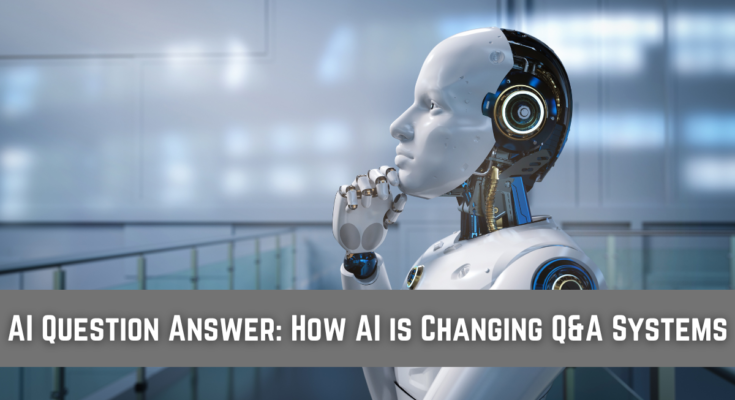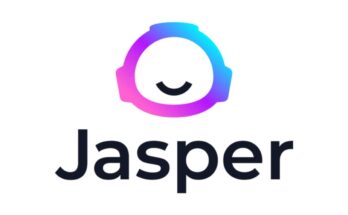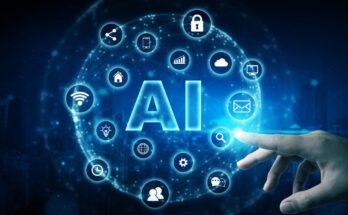The quicker pace of artificial intelligence (AI) has brought dramatic breakthroughs across different fields, and among the most thrilling ones is AI question-answer (QA) systems. From virtual assistants, search engines, and chatbots to others, AI-based QA models are revolutionizing the way we find and process information. In this blog post, we will discuss how question-answer with AI works, its uses, advantages, drawbacks, and where AI-based QA systems are heading.
Understanding AI Question-Answer Systems
AI question-answering is the ability of a computer to comprehend, process, and provide precise answers to questions asked by users. AI question-answer systems apply natural language processing (NLP), machine learning (ML), and deep learning algorithms to comprehend questions and retrieve related information.
There are two primary types of AI QA systems:
- Extractive QA – AI extracts and identifies pertinent text from a specified dataset (e.g., document or passage).
- Generative QA – Responses in natural language are generated by the AI by synthesizing information across several sources.
Some of the top AI models used for this purpose are GPT (Generative Pre-trained Transformer), BERT (Bidirectional Encoder Representations from Transformers), and T5 (Text-to-Text Transfer Transformer).
AI Question-Answer Tools
There are many AI-based tools that assist users in obtaining accurate and quick answers to their questions. Some of the most popular AI question-answer tools are mentioned below:

1. OpenAI ChatGPT
A highly capable generative AI model offering conversational answers to questions on a wide range of topics.
2. Google Search (AI-Powered Snippets)
Google uses AI to offer direct answers in search results in the form of featured snippets.
3. IBM Watson Assistant
An AI-based virtual assistant meant for companies, which can respond to queries and serve customers.
4. Amazon Alexa and Google Assistant
Virtual assistants based on AI to give instant answers to verbal questions.
5. Microsoft Bing AI Chat
An AI-based search assistant that gives lengthy answers through the processing of web information and AI models.
6. Perplexity AI
An AI-based research assistant that gives concise and well-referenced answers to user questions.
Applications of AI Question-Answering
AI systems already bring benefits to many sectors, making information and deep analysis available faster than ever. Here are some major use cases:

1. Search Engines
Typical search engines work on keyword-based indexing, forcing users to go through multiple results in order to reach an answer. AI search engines — particularly Google’s Featured Snippets and ChatGPT-based search assistant — deliver answers directly and accurately rather than simply links.
2. Virtual Assistants
QA models are used by AI assistants like Siri, Alexa, and Google Assistant to interpret user queries and provide appropriate answers. This makes them highly interactive and engaging when responding to user queries.
3. Customer Support Chatbots
AI are used to power chatbots which businesses deploy to answer customer queries in real-time. “Chatbots decrease the time between responses, are able to manage multiple inquiries at once, and are available around the clock.”
4. Medical Care and Assistance
AI-based QA model is aiding doctors and patients in gaining access to medical-related information in a matter of seconds. AI chatbots such as Buoy Health, IBM Watson can help diagnose symptoms and provide early health advice.
5. Education and E-Learning
Interactive and personalized learning can take place through AI-based tutors and learning assistants, like Socratic by Google and Khan Academy AI, which provide instant explanations to the students’ questions.
6. Legal and Financial Advisory
Legal assistants based on AI, like ROSS Intelligence, interpret legal documents and offer case-law-based responses. Likewise, financial advisory tools powered by AI enable users to gain insights into investment and financial planning.
Benefits of AI Question-Answering Systems
1. Instant and Accurate Responses
AI-based QA systems give instantaneous responses to questions, enhancing efficiency and decision-making.
Advantages of AI Question-Answer Systems
2. Enhanced User Experience
Spectacular things happen when AI QA models provide direct and context-relative answers, reducing the need for users to spend extra effort context-surfing through search results.
3. Scalability
AI-powered QA systems can efficiently address thousands of queries simultaneously and accurately identified the colloquial language of humans with replacing QA traditional human support agents.
4. Cost-Effective
By decreasing the number of required customer support personnel, AI chatbots and virtual assistants can lower your business’ operating costs.
5. Personalized Responses
AI models enable response customization– the latest query can be adjusted based on individual preferences or previous conversations.
Challenges of AI Question-Answer
While it brings many advantages, certain challenges accompany the AI-driven QA systems:
1. Understanding Complex Queries
The big AI models are getting better, but they still have a hard time with fuzzy or multi-part questions that require deep reasoning.
2. Bias in AI Models
AI systems are typically trained using large datasets, and any biases in these datasets can produce biased or misleading answers.
3. Misinformation & Hallucination
AI models do generate doubletalk, factually incorrect or misleading answers, often with some immunological name (AI hallucinations).
4. Data Privacy Concerns
However, AI QA systems need a large amount of data to function, which leads to questions on user privacy, data protection and information misuse.
5. Reliance on Training Data
An AI’s performance relies on the quality of the training data. Should the AI be trained with out-of-date or inaccurate sources, the AI will produce erroneous answers.
The Future of AI Question-Answer
The rise of AI-powered QA systems will parallel the development of natural language processing, deep learning, and AI ethics. Here are several trends going forward that should be monitored:
1. Enhanced Contextual Comprehension
And next-generation AI models will be able to keep up with complex, multi-turn conversations, allowing them to generate more accurate responses.
2. AR and VR Support
They can even be integrated with AR/VR solutions to create immersive experiences, both for learning and support, within the virtual world.
3. Ethical AI Development
AI bias is actively being reduced as researchers are focusing on training ethical AI to yield satisfactory and unbiased outputs.
4. Self-Learning AI Models
AI QA models of the future may adapt as they learn on their own, becoming more robust and accurate based on real-world user interactions over time.
5. More Human-Like Interactions
The development of emotional intelligence AI will facilitate more natural, empathetic, and human-like conversations by technology.
Conclusion
AI question-answering systems change the way we engage with the information, thus providing easier, efficient, and personalized access to knowledge. AI QA is revolutionizing industries, from search and virtual assistants to education and healthcare. Yet obstacles certainly remain — misinformation, bias and data privacy concerns — that will need to be solved to unlock its full value. The future holds even more advanced AI-driven question-answering systems capable of processing an ever-increasing amount of data and analyzing it in real-time.
This is the one where you use AI-powered information retrieval. We provide the latest in AI on TechByPrime.




